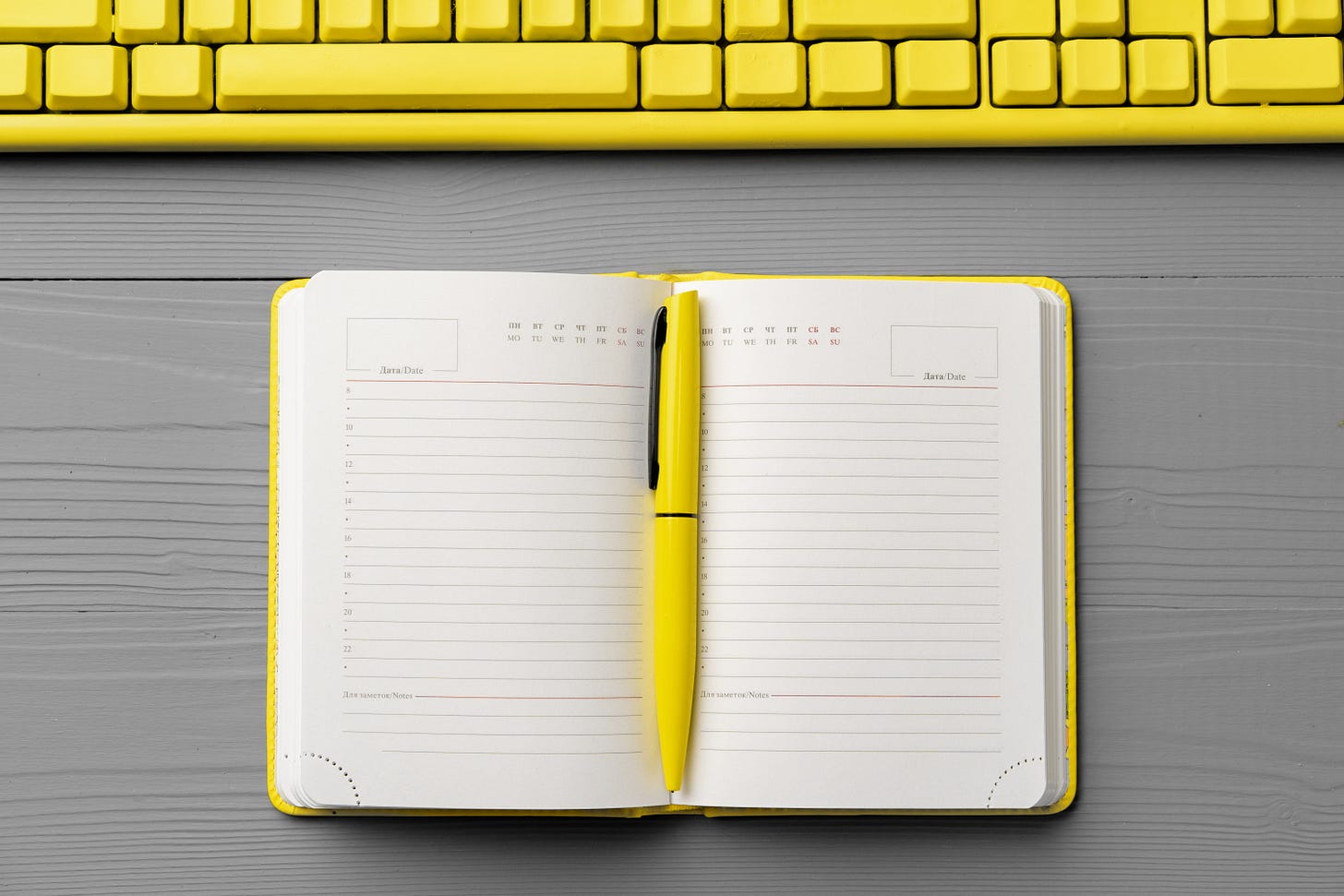Recently I’ve been seeing ads for a “grievance journal.” It’s basically a journal that allows you to complain about annoying people, situations, and setbacks. From the description, the one I saw appears to be a guided journal because it employs the use of writing prompts to help guide you in what to vent about.
It sounds like a great idea, right?!?
I often encourage my readers to express their feelings and I am definitely a fan of journaling to help with that. I like freeform journaling (that is, using a blank journal), but I’ve used writing prompts and guided journaling, as well. Sometimes when you’re really stuck, having a specific question to answer can help to open up the door to unsticking those emotions.
What do you think? Would a grievance journal be a help or a hinderance to your happiness journey?
I’m all about you finding out for yourself, so if you think a grievance journal could be just the thing for you, give it a try. But for those who are unsure or who want to know my thoughts on the subject first, I do have an opinion, which I’m basing both on the science behind happiness and on my own experience.
I’ve been journaling on and off for decades now and I’ve done my share of journaling when I’m angry, hurt, or frustrated. It’s definitely important to get these feelings out somehow and I like journals because of the privacy they afford. No one needs to know about my rants except me.
In fact, I don’t keep journals with biting words in them — or at least not for very long — because I don’t want someone to find them and be hurt by something I’ve said. I also don’t want someone who finds my journals to assume that I still feel the way I did when I initially wrote an entry. I always feel better once I’ve expressed my emotions and fully processed them.1
My first point, then, is that expressing emotions, even the difficult ones, is important in being able to transition through them and end up in a new, more positive place emotionally. From that standpoint, I can see how a grievance journal might help in the short term.
Especially if you’re an extrovert like me and people are tired of hearing you complain, a journal could be a great way to get out those emotions that everyone around you is tired of hearing about. But this comes with a caution, as well.
While expressing difficult emotions is important, if you are only expressing negative emotions, you will undoubtedly find that your life, in general, is difficult and that it never seems to get easier. Routinely using a grievance journal (say, every day) is, in my humble opinion, a bad idea. To understand why, we have to explore the topic using logic based on what scientists know about what actually works to increase our happiness.
I speak often about being adept at having gratitude in order to increase one’s happiness. The reason I am so adamant on that point is because the science is very clear. Finding reasons to be grateful will increase your happiness over time. At a minimum, you should be writing down at least one thing you are grateful for each day. Over time, you’ll find this will become easier and easier to do.
Now imagine that you are doing the opposite. Every day, you are finding something to be upset about, angry about, or offended about. What do you think will happen over time? You will, without a doubt, become more adept at finding things to be upset, angry, or offended about. This will definitely not lead you to be a happier person overall.
I get it. The idea of using a grievance journal is tempting. Even the journal’s description appeals to our negative emotions:
Toxic positivity got you down? Sick of perfectly-coiffed "life coaches" with glowing skin and zero problems telling you to manifest a better life by just "choosing" happiness? We are, too!
But the problem is that what we want to do and what we need to do to be happy are at odds. If you want to be happy, you have to work against the negativity that wants to pull you into a darker place.
But what should we do instead?
My advice, in a nutshell, is this:
Process your difficult (aka “negative”) emotions when they come up and use a freeform journal if that is helpful.
If you don’t already have one in place, begin a Gratitude Practice immediately.2
All that being said, if you want to give a grievance journal a try, you have my blessing to do so. If it works, great!
If it doesn’t, though, no worries. At least you will be aware of one more thing that doesn’t work and you can cross it off your happiness “to do” list. :)
Fully expressing and processing emotions could take a long time, maybe even years or decades, depending on the situation. But the goal is to get to a place where you literally look back one day and wonder how you could have ever felt that awful about a particular situation.
If you don’t know where to start, read some of my earlier posts on gratitude for tips and ideas that might work for you.






